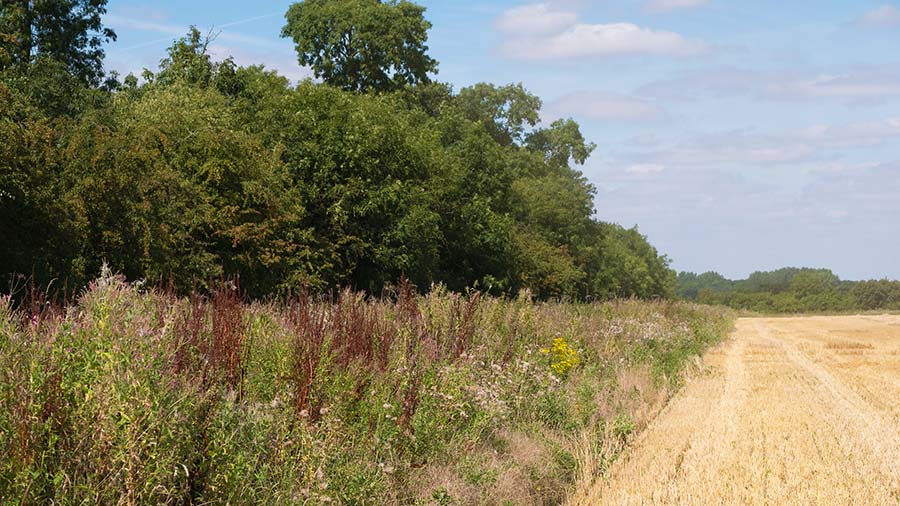Advice for arable growers with stewardship ending this year
 © Tim Scrivener
© Tim Scrivener Take the opportunity to replace expiring Countryside Stewardship schemes with new, enhanced agreements while you still get paid to participate, farmers are being advised.
Rather than just extending an existing Mid Tier scheme, growers should be prepared to have a re-think and use the knowledge gained from its duration to add and expand the best environmental options for their farms, as well as maximising their income.
See also: Analysis: What makes top arable farms more profitable?
Although mirror agreements are also available – which provide a new five-year agreement on the same basis as the original one – they don’t allow participants to change any of the options they decided on at the outset, experts warned.
However, a change in the rules for this year does allow a separate capital works agreement on the same land, something that was previously not available with mirror agreements.
ELM preparation
As Alastair Leake, director of policy at the Game and Wildlife Conservation Trust explained, doing a new agreement for the next five years makes sense in most situations and gives growers some breathing space.
“Until more details about the Environmental Land Management (ELM) schemes are released and the industry has a better understanding of what will be expected from them, paving the way with an enhanced Countryside Stewardship scheme is the best solution for most farms.
“We only know some of what’s coming down the line, so getting organised for the next five years will allow the ELM dust to settle,” he said.
“It also gives the certainty of a known income stream in such a volatile trading environment.”
Mirror agreements
Katie Hilton, a director at Cheffins, pointed out that the change to mirror agreements adds in some much-needed flexibility and means that being able to apply for a capital works scheme takes away one of the reasons to not sign up on the same basis as before.
“Whatever course of action you eventually decide on, start with whether you want to have a significant rethink on your annual options or not,” she advised.
“If you want to add in options, you will need a new agreement.”
Given current commodity prices, many growers will be reconsidering how much land they want to have tied up in rotational options, such as AB15, and how much productive land is taken out.
“The options that work around the edges of fields and on very unproductive or difficult bits of land are likely to be the most appealing.”
SFI considerations
She also stressed that the Sustainable Farming Incentive (SFI) is compatible with Mid Tier Countryside Stewardship and that growers can do both.
“The SFI soil standards in isolation may not be worthwhile, but look on it as your entry point, as we know that the SFI is going to be the main delivery mechanism in the future,” she said.
“Ask yourself why you wouldn’t take the money, despite the cost implications of doing so.”
Mrs Hilton also highlighted the break clause that it is in new Mid Tier agreements, which means that participants will be able to break the agreement to transfer into ELM, if it’s advantageous to do so.
The situation with HLS agreements coming to an end is slightly different, she added, so decisions about the future should be made on a case-by-case basis.
Payment basis
Ed Hutley, partner at Ceres Rural, said it was important to make the distinction between Countryside Stewardship payments, which were for participation, while the forthcoming local nature and landscape recovery schemes in ELM would involve payment for results.
“My instinct is that growers should reapply for a new agreement while they can,” he said.
“As an industry, we’ve learnt quite a bit over the past few years and we know which options are working and how to manage them.”
He accepted that the rotational options were more complicated and less attractive in the current climate, with flexibility being more important while volatility remains.
As far as the SFI soil standards are concerned, Mr Hutley pointed out that many growers would be able to receive a payment for something they were already doing.
All three experts were speaking to Farmers Weekly at the recent Cereals event, held in Cambridgeshire
